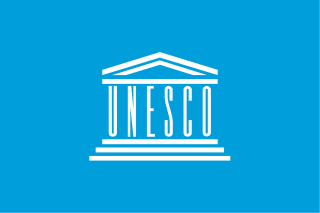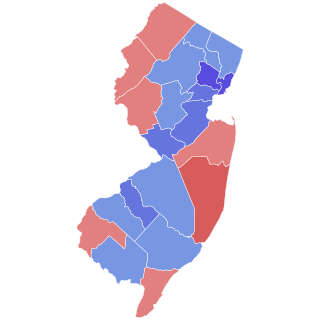
Pacifism is the opposition or resistance to war, militarism or violence. The word pacifism was coined by the French peace campaigner Émile Arnaud and adopted by other peace activists at the tenth Universal Peace Congress in Glasgow in 1901. A related term is ahimsa, which is a core philosophy in Indian religions such as Hinduism, Buddhism, and Jainism. While modern connotations are recent, having been explicated since the 19th century, ancient references abound.

Aggression is a behavior aimed at opposing or attacking something or someone. Though often done with the intent to cause harm, it can be channeled into creative and practical outlets for some. It may occur either reactively or without provocation. In humans, aggression can be caused by various triggers. For example, built-up frustration due to blocked goals or perceived disrespect. Human aggression can be classified into direct and indirect aggression; while the former is characterized by physical or verbal behavior intended to cause harm to someone, the latter is characterized by behavior intended to harm the social relations of an individual or group.

Rigoberta Menchú Tum is a K'iche' Guatemalan human rights activist, feminist, and Nobel Peace Prize laureate. Menchú has dedicated her life to publicizing the rights of Guatemala's Indigenous peoples during and after the Guatemalan Civil War (1960–1996), and to promoting Indigenous rights internationally.
The Sydney Peace Prize is awarded by the Sydney Peace Foundation, a non profit organisation associated with the University of Sydney. The prize promotes peace with justice and the practice of nonviolence. It aims to encourage public interest and discussion about issues of peace, social justice, human rights, and non-violent conflict resolution.

War Child International is an independent non-government organization founded in 1993 by film-makers Bill Leeson, David Wilson, and peace activist Willemijn Verloop. The organization works with parents, caregivers, community members, NGOs, governments, corporations, and other partners worldwide to ensure that children have access to protection, education and psychosocial support. War Child's work is rooted in the United Nations Convention on the Rights of the Child.
The killer ape theory or killer ape hypothesis is the theory that war and interpersonal aggression was the driving force behind human evolution. It was originated by Raymond Dart in the 1950s; it was developed further in African Genesis by Robert Ardrey in 1961.

The Global 500 Roll of Honour was an award given from 1987 to 2003 by the United Nations Environment Programme (UNEP). The award recognized the environmental achievements of individuals and organizations around the world. A successor system of UNEP awards called Champions of the Earth started in 2005.

Federico Mayor Zaragoza is a Spanish scientist, scholar, politician, diplomat, and poet. He served as the Director-General of the United Nations Educational, Scientific, and Cultural Organization (UNESCO) from 1987 to 1999. After his tenure as Director-General, he continued to participate in various peace-related organizations, such as the Foundation for a Culture of Peace and the International Decade for the Promotion of a Culture of Peace and Non-Violence for the Children of the World, as a member of their honorary boards. Additionally, he serves as the honorary chairman of the Académie de la Paix.
Peace education is the process of acquiring values, knowledge, attitudes, skills, and behaviors to live in harmony with oneself, others, and the natural environment.

Carmen María Gallardo Hernández is a Salvadoran diplomat. Gallardo Hernández's career has established her as a prominent figure and proponent of both bilateralism and multilateralism relations. She has served in key diplomatic posts abroad and has served in a wide variety of representative roles in the United Nations and other international organizations.
The Seville Statement on Violence is a statement on violence that was adopted by an international meeting of scientists, convened by the Spanish National Commission for UNESCO, in Seville, Spain, on 16 May 1986. It was subsequently adopted by UNESCO at the twenty-fifth session of the General Conference on 16 November 1989. The statement, then known as a 'Statement on Violence', was designed to refute "the notion that organized human violence is biologically determined".
The International Year for the Culture of Peace was designated by the United Nations as the year 2000, with the aim of celebrating and encouraging a culture of peace.
The UNESCO-Madanjeet Singh Prize for the Promotion of Tolerance and Non-Violence is a prize awarded every two years by UNESCO. It was inaugurated in 1996, following the 1995 United Nations Year for Tolerance and in connection with the 125th anniversary of the birth of Mohandas Gandhi, funded by a donation from Madanjeet Singh.
The International Salon for Peace Initiatives is organized in the framework of the International Decade for the Promotion of a Culture of Peace and Non-Violence for the Children of the World (2001–2010) declared by the United Nations in 1998. Organized by the French Coalition for the Decade, it has been taken place in Paris every two years since 2004.
The Gandhi Foundation is a United Kingdom-based voluntary organisation which seeks to further the work of Mahatma Gandhi through a variety of educational events and activities.

The School Day of Non-violence and Peace is an observance founded by the Spanish poet Llorenç Vidal Vidal in Majorca in 1964 as a starting point and support for a pacifying and non-violent education of a permanent character. Different as the first proposed by the UNESCO "Armistice Day" in 1948, DENIP is observed on January 30 or thereabouts every year, on the anniversary of the death of Mahatma Gandhi, in schools all over the world. In countries with a Southern Hemisphere school calendar, it can be observed on 30 March. Its basic and permanent message is: "Universal love, non-violence and peace. Universal love is better than egoism, non-violence is better than violence, and peace is better than war". In Navarra the slogan for the 2009 was "above all, we are friends".

The United Nations Educational, Scientific and Cultural Organization is a specialized agency of the United Nations (UN) with the aim of promoting world peace and security through international cooperation in education, arts, sciences and culture. It has 194 member states and 12 associate members, as well as partners in the non-governmental, intergovernmental and private sector. Headquartered in Paris, France, UNESCO has 53 regional field offices and 199 national commissions.
Since their inception in the 1970s, video games have often been criticized by some for violent content. Politicians, parents, and other activists have claimed that violence in video games can be tied to violent behavior, particularly in children, and have sought ways to regulate the sale of video games. Studies have shown no connection between video games and violent behavior. The American Psychological Association states that while there is a well-established link between violent video games and aggressive behaviors, attributing acts of violence to violent video gaming "is not scientifically sound."

The 2020 United States Senate election in New Jersey was held on November 3, 2020, to elect a member of the United States Senate to represent the State of New Jersey. It was held concurrently with the 2020 United States presidential election, as well as various other elections. The primary elections were moved from June 2, 2020, to July 7, 2020, due to COVID-19 pandemic concerns. Incumbent senator Cory Booker was first elected in a 2013 special election to complete the term of fellow Democrat Frank Lautenberg, who died in office.
The Declaration and Programme of Action on a Culture of Peace was adopted by the United Nations General Assembly on September 13, 1999. This occurred after ten months of negotiations in the context of preparations for the International Year for the Culture of Peace.










